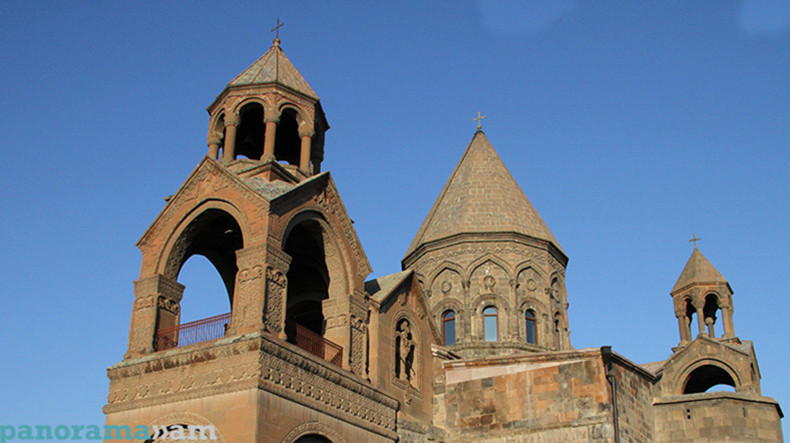
Armenian Church commemorates Sts. John the Baptist, Job the Righteous
The Armenian Apostolic Church commemorates on 5 September Sts. John the Baptist and Job the Righteous, Qahana.am reports.
St. John the Baptist (the Forerunner) is the most prominent person in the Gospels after Jesus Christ and it is he who opens the era of God’s Kingdom, that is - the era of Christ’s Church. Being a promised son and born in excellent conditions, John spends his youth in isolation and in the presence and virtues of God. At the age of 30 he goes to the valley of Jordan to preach and to prepare the people for Christ’s Coming. In the very beginning of his mission he appeals to the people and exhorts them to turn from their sins: “Turn away from your sins, because the Kingdom of heaven is near! ... Do those things that will show that you have turned from sins... The ax is ready to cut down the trees at the roots; every tree that does not bear good fruit will be cut down and thrown in the fire” (The Gospel according to Matthew 3:2, 8, 10). In the Gospels he is the man the Prophet Isaiah was talking about when he said, “Someone is shouting in the desert, “ Prepare a road for the Lord; make a straight way for him to travel!” (The Gospel according to Matthew 3:3). The peak of John’s activity is baptizing of Jesus and declaring him to be the promised Messiah. After John’s realizing the mission of baptizing Herod, the ruler of Galilee first imprisons John the Baptist for reprimanding him for marrying to Herodias, his brother Philip’s wife, and then beheads John the Baptist.
Job lived in the land of Uz surrounding the Dead Sea. He “worshipped God and was faithful to him. He was a good man, careful no to do anything evil” (The Book of Job 1:1). Job had seven sons and three daughters; he was rich and had a large number of servants. However, wealth had not spoilt him
By the will of God job is subjected to various sufferings, loses his property, children and is afflicted with a repulsive disease (leprosy), but nevertheless, he does not sin against God and in response to his wife’s complaints, Job says: “When God sends us something good, we welcome it. How can we complain when he sends us troubles?” (The Book of Job 2:10). Facing all those sufferings, in the end Job is restored to his former conditions with even greater prosperity than before.
Job’s life teaches us two important and true things: firstly, the spirit of evil, Satan, always stands in the roots of the evil, and secondly, the sufferings always contribute to the man’s becoming a good man.
Newsfeed
Videos






























